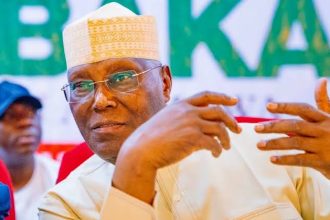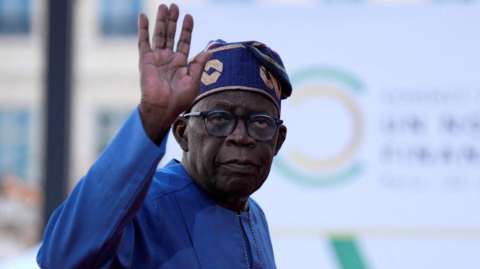Mediaage NG News – ABUJA, Nigeria
The Nigerian government has ceased plans to continue on a controversial annual levy that would demand expatriates workers to pay $15,000 (£12,000) for a Director and $10,000 (£8,000) for other workers.
The move to impose the levy was widely condemned by critics, after authorities in the country had imposed the tax over a week ago.
In a statement from the county’s Ministry of Interior, on X (formerly twitter), the levy would be paused for “dialogue among stakeholders”.
It said the tax was intended to “discourage abuse” of the expatriate quota.
On Friday, in the Nigerian capital, Abuja, a meeting was held to discuss the levy.
The Ministry said it hoped the levy would create “employment opportunities for Nigerians while closing wage gaps between expatriates and local workers”.
Dele Kelvin Oye, national president of the Nigerian Association of Chambers of Commerce, Industry, Mines, and Agriculture (NACCIMA), welcomed the pause.
He praised the government for considering the implications the levy could bring on Nigeria’s business community.
“This is indicative of their commitment to creating an inviting atmosphere for both local and international investors,” he said in a statement.
When the Expatriate Employment Levy (EEL) was imposed many organisations hit back against it.
The Nigeria Employers’ Consultative Association (NECA) raised alarm over the policy, especially as Nigeria faces its worst economic crisis in a generation.
In a statement shared on X, Neca called the policy “worrisome”. It expressed fears the levy could “potentially increase the level of unemployment with dire socio-economic consequences”.
Manufacturers Association of Nigeria (MAN) called the policy “punitive” and a “punishment” for investors.
“The policy will surely undermine the administration’s determination to position Nigeria as an attractive global investment destination,” it said on X.
There are more than 150,000 expatriates in Nigeria, according to local media citing data from the interior ministry.
They mostly work in the oil and gas, construction, telecommunication and hospitality sectors.
Nigeria is one of Africa’s biggest oil producers. Its oil and gas exports account for 90% of foreign exchange earnings, according to the International Monetary Fund.
It currently costs companies in Nigeria $2,000 a year to obtain a residency permit for each foreign employee.
Mr Tinubu acknowledged Nigerians were going through a difficult period.
Nigerians are facing increased food, transport and commodity prices. This is because of the fall of the naira – which has caused a spike in foreign exchange rates and driven up inflation.
He said efforts were being made to improve the country’s finances and grow the economy.






